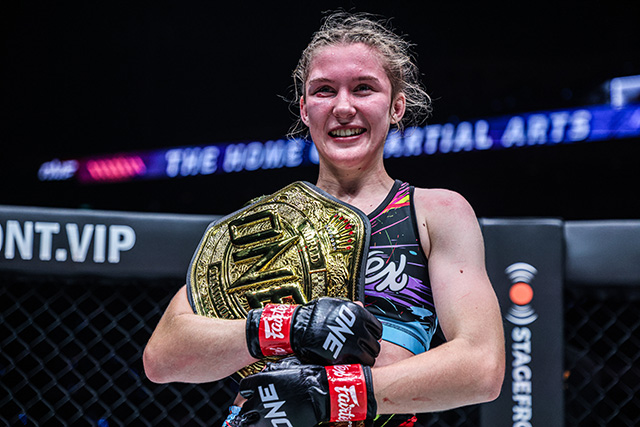Anderson Silva Receives 1-Year USADA Suspension for Contaminated Supplement
Anderson Silva could return to the UFC before the year is through.
Advertisement
The 43-year-old Brazilian previously tested positive for two different anabolic steroids -- drostanolone metabolites and androstane -- prior to a January 2015 bout against Nick Diaz at UFC 183. He also tested positive for oxazepam, an anxiety medication, and temazepam, an anti-insomnia medication, in a post-fight drug test, along with drostanolone metabolites again. Silva claimed that a tainted sexual enhancement pill resulted in the positive test, but he was still suspended one year and fined $380,000 by the Nevada Athletic Commission.
“I am vindicated,” Silva said in a statement released to ESPN.
“The past nine months have been extremely difficult. I felt like my
career and everything I had worked so hard for was dying and my
future was hanging in the balance. I knew in my heart that I had
done nothing wrong and fully cooperated with USADA during their
inquiry to prove it. Today I have a renewed energy. My legacy is
restored. I can focus on getting back into the ring and the next
chapter of my life after fighting.”
Silva last appeared at UFC 208, where he earned a contentious decision win over Derek Brunson to halt a five-bout winless streak. The full statement from USADA regarding Silva is as follows:
USADA announced today that Anderson Silva, of Palo Verdes, Calif., has accepted a one-year sanction for his second anti-doping violation after testing positive for prohibited substances from a contaminated supplement.
Silva, 43, is the fourth athlete to accept a sanction under the UFC Anti-Doping Policy as a result of a positive test caused by the use of contaminated supplements purchased from a Brazilian compounding pharmacy. Unlike retail pharmacies and drugstores, which receive their drug inventories from commercial manufacturers, compounding pharmacies prepare their medications onsite according to specifications contained in a written prescription. In this instance, the compounding pharmacy also produced and sold nutritional supplements. Although athletes competing in the UFC are repeatedly warned that supplements are risky and frequently contain substances not listed on the label including prohibited, as well as, harmful drugs, the pharmacy that prepared Silva’s supplement marketed its products as a safe alternative to mass produced medications and supplements and also claimed to utilize manufacturing processes designed to eliminate the possibility of cross-contamination.
Silva tested positive for the methyltestosterone metabolites 17α-methyl-5β-androstan-3α,17β-diol and 17α-methyl-5α-androstan-3α,17β-diol, as well as hydrochlorothiazide, following an out-of-competition urine test conducted on October 26, 2017. Methyltestosterone is a non-Specified Substance in the class of Anabolic Agents, while hydrochlorothiazide is a Specified Substance in the class of Diuretics and Masking Agents. Both of these substances are prohibited at all times under the UFC Anti-Doping Policy, which has adopted the World Anti-Doping Agency (WADA) Prohibited List.
Following notification of his positive test, Silva provided USADA with an open container of a compounded dietary supplement product he was using at the time of his positive test. Although no prohibited substances were listed on the supplement label, testing conducted by the WADA-accredited laboratory in Salt Lake City confirmed the presence of methyltestosterone and hydrochlorothiazide in the product. Thereafter, in the course of its broader investigation into Brazilian compounding pharmacies, USADA independently sourced numerous supplement products from the same compounding pharmacy that prepared Silva’s contaminated supplement. The analysis of those products by the Salt Lake City laboratory confirmed that they were similarly contaminated with prohibited substances, including multiple anabolic agents and diuretics.
Under the UFC Anti-Doping Policy, as well as the World Anti-Doping Code, the determination that an athlete’s positive test was caused by a contaminated product may result in a reduced sanction. In this case, the sanction length also reflects the fact that this is Silva’s second doping violation, with the first resulting from a decision by the Nevada State Athletic Commission in 2015 to suspend Silva for one year after he tested positive for multiple prohibited substances. If no reduction had been applied due to the finding that Silva’s positive test was caused by a contaminated product, the standard sanction for a second violation involving a non-Specified Substance would have resulted in a four-year period of ineligibility.
Silva’s one-year period of ineligibility began on November 10, 2017, the date his provisional suspension was imposed. Silva will be eligible to return to competition upon the completion of his sanction on November 10, 2018.
Pursuant to the UFC Anti-Doping Policy, all UFC athletes serving a period of ineligibility for an anti-doping policy violation are required to continue to make themselves available for testing in order to receive credit for time completed under their sanction.
Related Articles







